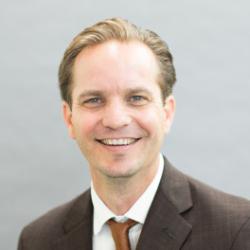In a February 10 wire story by ANSA, it was reported that Benedict XVI has once again exhorted economists and leaders to place “people at the center of [their] economic decision-making” and reminded them that the “global financial crisis has impoverished no small number of people.”
For those who follow Benedict closely in Rome, one might wonder why the Holy Father’s words, delivered during his February 10 general audience, even made national headlines. To be sure, it is not the first time we hear the Holy Father expressing his views on the price the world is still paying for not placing the human person, along with and our God-given freedom, innovation and basic dignity, at the core of economic models and financial choices.
The pope is perhaps sounding like a broken record, criticizing and admonishing the “same-o, same-o” regarding the global financial crisis and the Church’s social teachings. Why so?
No doubt, a wave of recent woes in the European financial news have caused Benedict grave concern.
The robust euro currency has experienced a precipitous fall since January 1, and especially so since emergency meetings were held in Brussels last week to save Greece — one of Europe’s most corrupt nations and lowest-ranking economic performers — from Euro-zone fall out; while earlier this week, in an unprecedented move, Germany and France threw on their red capes to rescue the cradle of Western civilization from the brink of financial disaster. Then there were the corrupt public officials in Spain who finally received severe sentencing for illegally boosting a once-thriving Spanish housing market. And the local financial reports became even more bleak in Italy, when in late January two of the country’s “too-big-too-fail” production plants (at Fiat and Alcoa) announced imminent closure, and thousands of their incensed employees rallied in union-led strikes to save their jobs in early February.
It was these same very worried plant workers who appeared under Benedict’s apartment window during a January 31 Angelus and heard the pope’s anger: “The financial crisis is causing the loss of many jobs and this situation requires a great sense of responsibility on the part of all: entrepreneurs and government leaders [alike].”
Hence the pope’s sermonizing against the continued causes and effects of the financial market’s moral failings certainly still do have concrete realities to draw upon. The aftermath of corporate and political leadership’s deafness to the Church’s basic social teachings seems endless and with no sign of turning around.
So we should rightly ask ourselves whether we have become a little too hard of hearing, rather than thinking the Holy Father is not saying anything new.
The Holy Father, a patient and loving university professor at heart, knows that he should not worry about the needle skipping on his turntable of teaching: After all, he knows all too well that repetition is the best form of learning.
Sooner or later, our human hearts are bound to embrace the repeated Truth that continues to call us home during this dark period. Its final acceptance and application will be our only way out.

